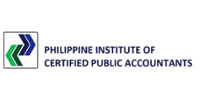Event Details
The post-Enron era convinced many entities to adopt stronger corporate governance systems. Corporate governance is the system by which companies are directed and controlled. It is anchored on the effective and independent functioning of corporate boards and audit committees and, in particular, in the functioning of an effective oversight process. It is to be mentioned though that good corporate governance is not just about complying with governance codes and regulations; rather, corporate governance should result to better performance and "value creation."
Recent studies and empirical data support the belief that good corporate governance does enhance performance; hence, it has tangible as well as intangible benefits. Those firms that devote and invest more in corporate governance policies and practices have produced substantially better operational and market performance than their peers. Further, effective corporate governance helps both in good as well as difficult economic times. Good corporate governance enables entities weather severe economic and financial turmoils of an economic downturn. In addition, creditors are more willing to lend at lower rates of interest to well-governed companies.
In 2004, the Organization for Economic Cooperation and Development (OECD) came up with the OECD Principles of Corporate Governance. In the Philippines, the SEC issued the SEC Code of Corporate Governance which was recently revised through SEC Memorandum Circular 6, Series of 2009. In 2016, the SEC issued the new Code of Corporate Governance on PLCs.
Accountants and other professionals should possess a solid appreciation of corporate governance most especially with regards tangible and intangible benefits that could be derived from it. Premised on this, the seminar module as herein presented is being applied for.
PICPA Building
700 Shaw Boulevard
Mandaluyong, Metro Manila, Philippines
Show on map
Agenda
- 8:00 AM - 5:00 PMBenefits of Corporate GovernanceAt the end of the 8-hour seminar, the participants should be able to:
• Define corporate governance;
• Describe the key features of corporate governance regulations such as SOX Law and the Philippine SEC Code of Corporate Governance;
• Identify corporate collapses that occurred because of weak or absent corporate governance mechanisms (i.e. Enron, WorldCom);
• Describe the roles of the BOD, managers, personnel and auditors in the corporate governance process;
• Explain how the board, in its governance and oversight functions, enhances the functioning of internal control;
• Describe the roles of the Audit and Risk Oversight Committees;
• Describe ways and means of attaining a strong ethical culture;
• Enumerate the elements of a strong and functioning corporate ethical culture;
• Explain how the board, through internal audit and other processes, evaluates the level of compliance of personnel with the corporate code of conduct;
• Describe how effective governance prevents and deters the occurrence of fraud; and
• Explain how effective governance influences providers of funds to charge lower cost of capital.
Jesse Rey Meneses
Speakers
- JM
Jesse Rey Meneses
Read Bio
